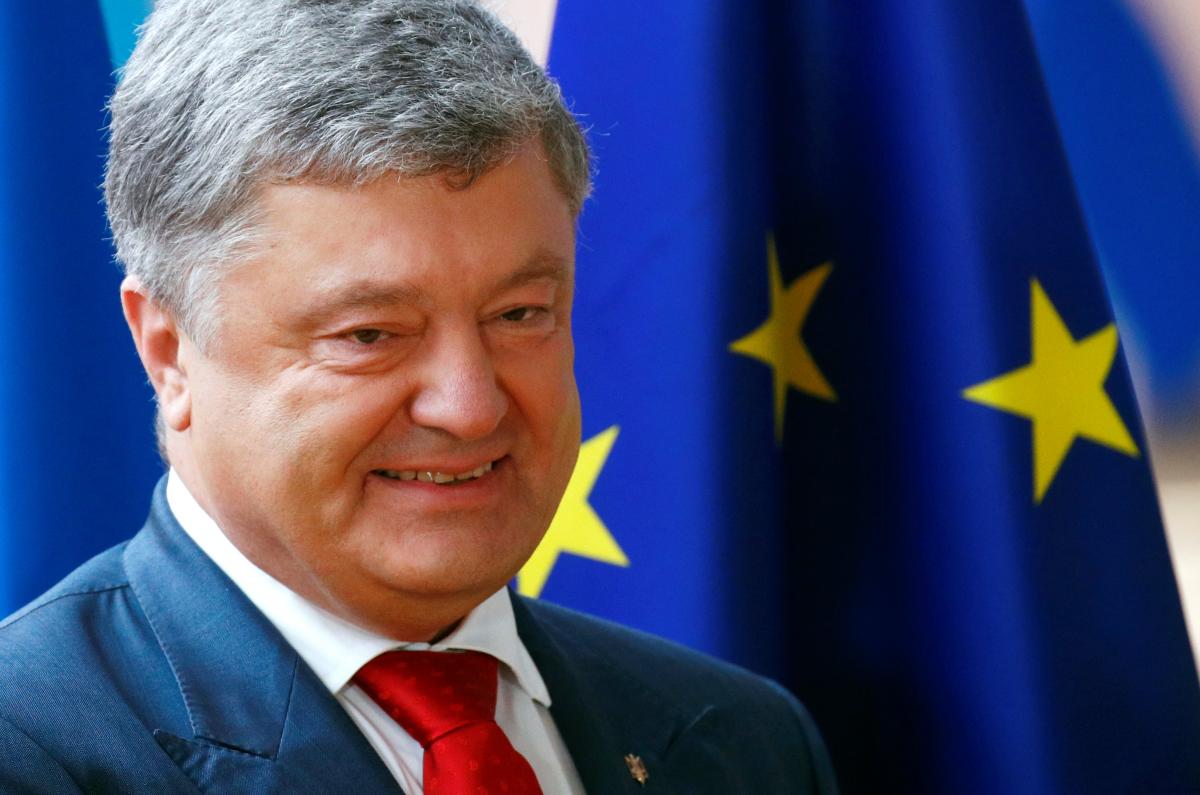
This is a significant week for Ukraine as it faces substantial challenges to its security and stability. It started with Monday’s Ukraine-EU summit in Brussels, followed by the Nato summit, in which Ukraine will also participate, according to Ukrainian President Petro Poroshenko.
"And the meeting next week in Helsinki between Donald Trump and Vladimir Putin will confirm that Ukraine is on the frontline of European and transatlantic politics," Poroshenko wrote in a column for the Financial Times.
The challenges the country faces are immense, says the President, adding that this is not the time to ease up the pressure on Russia.
"To do so would be a confession of weakness," he wrote.
Instead, he believes it should be made clear "that the values and principles of the free world will not be compromised."
"I will continue to defend this cause and Ukraine’s interests, insisting that territories occupied by Russia must be returned," Poroshenko wrote.
Read alsoUkraine coordinates with EU efforts to counter election meddling threats
In Brussels this week Poroshenko says Ukraine will make it clear that the cost of aggression will keep rising for Russia until they implement Minsk agreements and end occupation of Crimea and Donbas.
"Whether on the streets of English towns such as Salisbury, in the email servers of western political parties, or via Moscow-controlled propaganda outlets across the west, Russia is seeking to sow division, confusion and fear by taking advantage of our open societies," the president wrote.
Poroshenko also stressed "there is nothing the Kremlin fears more than our unity and resolve," noting that complete integration of Ukraine into the European and transatlantic systems "is the biggest threat to Russian aggression."
Read alsoPolish PM: War in Donbas part of Russia's big plan to destabilize West
The president's ambition, therefore, as he puts it, "is to translate Ukraine’s European aspirations into deeper alliances with the EU, starting with the digital market, customs co-operation and energy solidarity," including a "commitment from European capitals to take part" in the restoration of war-torn cities in Donbas.
"Anything less would not compensate Ukraine for its sacrifices or recognise its commitment to the promotion of democracy and European values," Poroshenko says.
He also noted progress in reforms over the past four years, in the face of foreign aggression, calling them "irreversible."
In security policy, Poroshenko says he stands for the strengthening of Ukraine’s ties with NATO.
"This is our sovereign choice, and no other country should have a veto on our ambitions," he wrote.
Read alsoEU about war in Ukraine: "Acts of aggression by Russian armed forces"
Thus far, Ukraine has contributed more in terms of global security than it has received in return, according to the president who recalled Ukraine's participation in NATO-led peacekeeping operations and a rise of defense spending to 6% of GDP, which far exceeds the Nato target of 2% of GDP.
He also recalled the newly-adopted national security law, "which will bring Ukraine closer to NATO standards."
This week, the president says he will announce "an increased Ukrainian contribution to NATO’s Resolute Support peacekeeping mission in Afghanistan," continuing to promote the fundamental role played by peacekeepers "wherever they are needed," including in the occupied Donbas.
Read alsoU.S. welcomes Ukraine's new national security law
"This “Ukrainian week” will send a powerful message that will be heard in Brussels and beyond — most importantly in Helsinki. Based on our agreed approach of doing nothing on Ukraine without Ukraine, I wish Mr Trump well in his efforts to bring Mr Putin back into line. Knowing the Russian president as I do, I would bet that he craves our defeat. But that is not an option, and never will be," Petro Poroshenko concluded.

